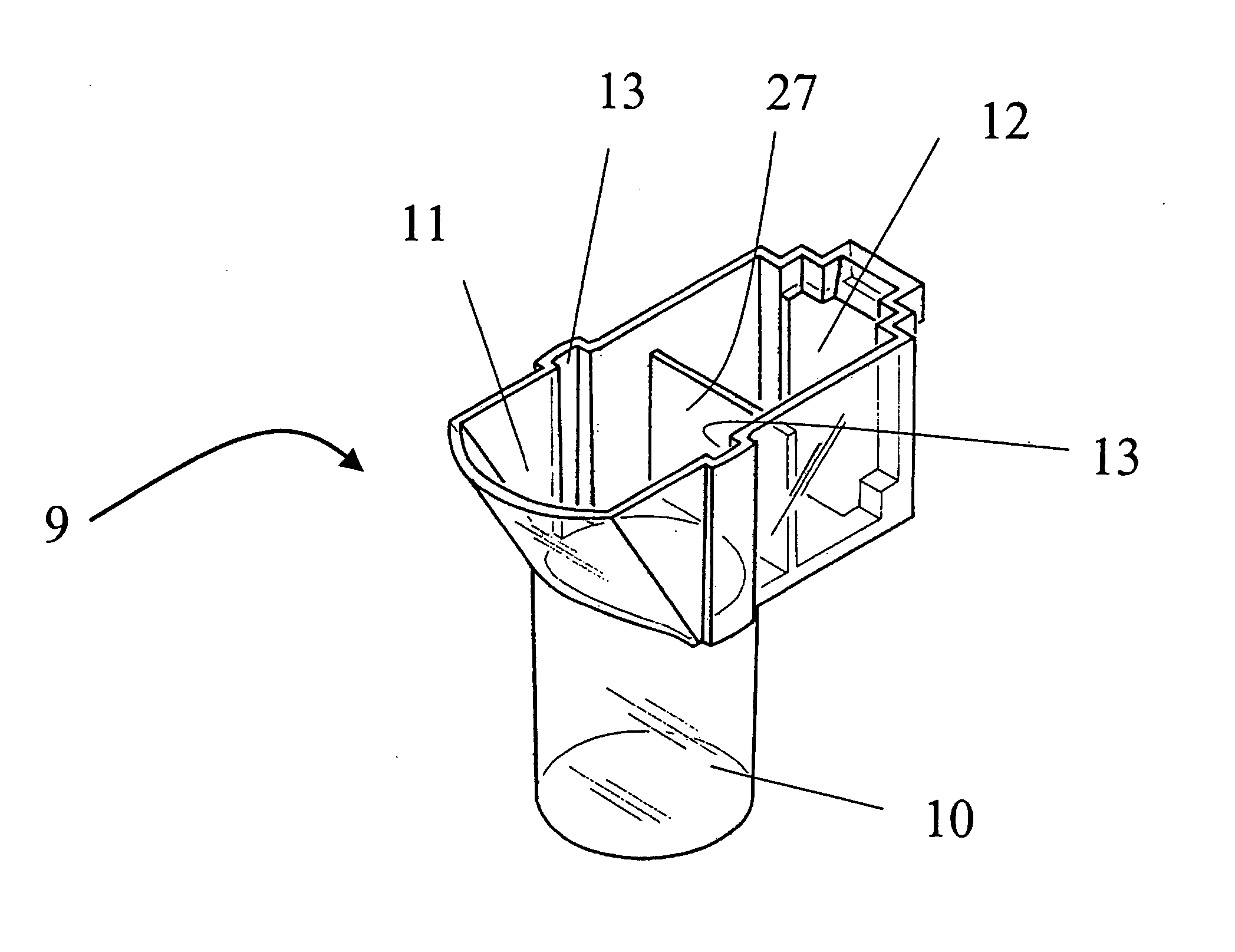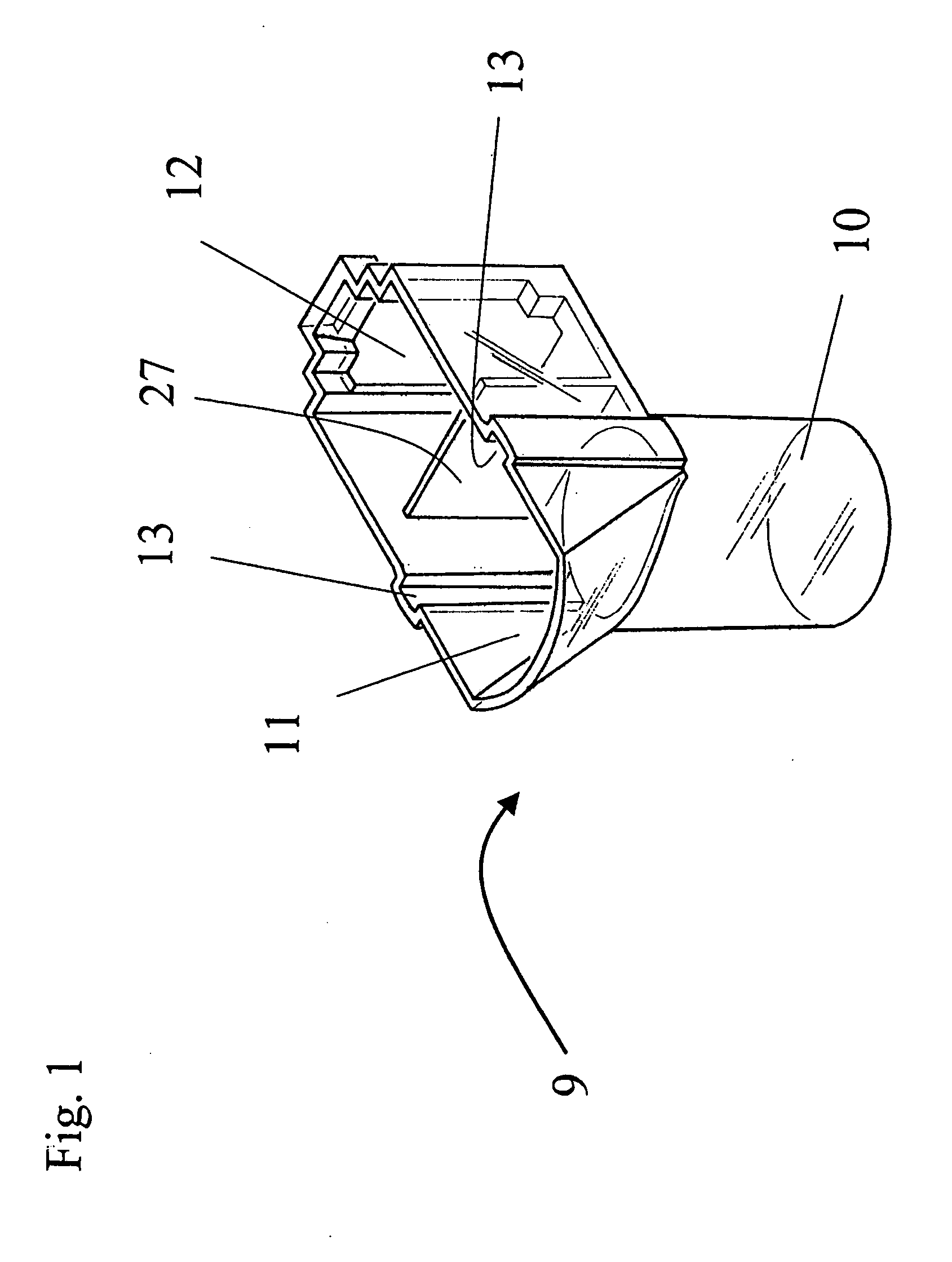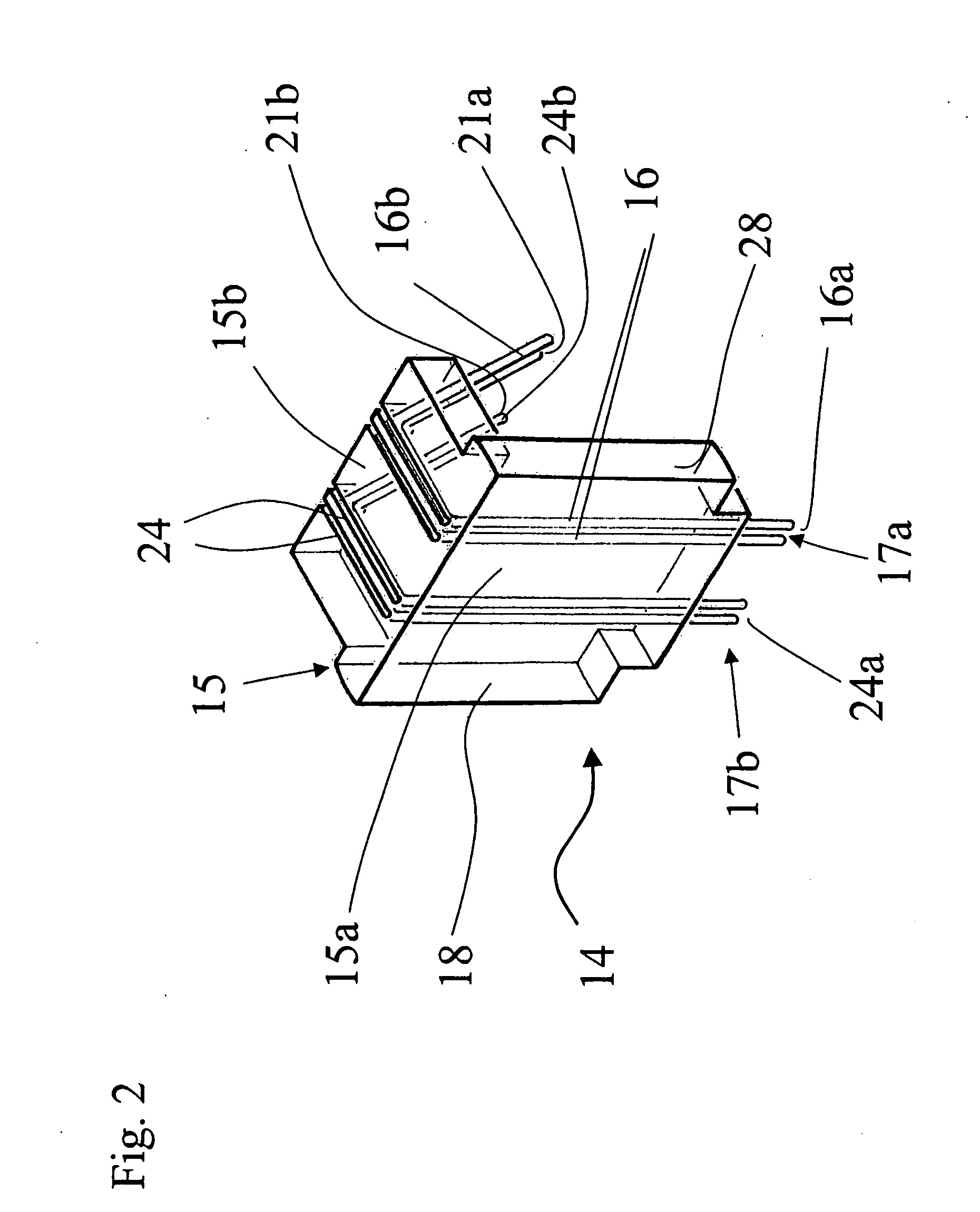Cartridge device for blood analysis
a blood analysis and cartridge technology, applied in the field of cartridge devices for blood analysis, can solve the problems of affecting the flow of blood in tissues of vital importance, affecting the quality of blood, so as to improve the analytical signal, improve the analytical effect, and improve the effect of conductivity
- Summary
- Abstract
- Description
- Claims
- Application Information
AI Technical Summary
Benefits of technology
Problems solved by technology
Method used
Image
Examples
first embodiment
[0055] The other part of the cartridge device 20 is the electrode holder 14, illustrated in FIG. 2 in a perspective view according to the present invention. The electrode holder 14 consists particularly of a plastic body 15, in which two tiny electrode wire pairs 16, 24 are incorporated. Each wire of a wire pair 16, 24 has preferably a diameter of about 0.1-0.5 mm, most preferably 0.3 mm.
[0056] The electrode holder 14 comprises especially a L-formed body 15 with a long part 15a and a short part 15b perpendicular to the long part 15a. At the face side of the long part 15a of the electrode holder 14 each electrode wire of the electrode pairs 16, 24 protrudes and forms a sensor portion 16a, 24a. For example, two sensor portions 16a or 24a form together a sensor unit 17a or 17b. During the analysis the sensor units 17a and 17b are completely immersed into the blood sample. The blood platelets adhere on the sensor portions 16a, 24a of the wire pairs 16, 24 and change the electrical imped...
second embodiment
[0077] A second preferred embodiment of the cartridge device 20 is shown in FIG. 8, which is a perspective view. The cell 9 is identical to the previous embodiment and therefore it is referred to the above evaluations.
[0078] However contrary to the first embodiment the electrode holder 14 according to the second embodiment comprises three sensor units 17a, 17b, 17c, which are linearly arranged to each other. Each sensor unit consists of a pair of electrode wires 16, 24 and 25, respectively. Due to the linear arrangement the electrode wire pair 24 is in the middle of the two remaining electrode wire pairs 16 and 25 and is exposed to a significantly lower blood flow when compared to the outer electrode wire pairs 16 and 25. Hence according to the second embodiment it is possible to compare platelet adhesion and aggregation under varying flow conditions. It is obvious to a person skilled in the art that by variations of the number and geometric arrangement of the test units the flow c...
fourth embodiment
[0081]FIG. 10 illustrates a top plan sectional view of a cartridge device 20 according to the present invention. The cell 9 is identical to the aforementioned embodiments and therefore it is referred to the above evaluations.
[0082] However the electrode holder 14 is formed to allow a circular arrangement (FIG. 8) of several sensor units. According to the present arrangement shown in FIG. 10 three sensor units 17a, 17b and 17c are arranged at the same radial location in the blood sample, i.e. in the receiving portion 10, and exposed to the identical or nearly identical blood flow, which allows to directly compare the signals.
[0083] According to the fourth embodiment the analyser independently records the changes in conductivity between the wire pairs of the three sensor units 17a, 17b and 17c. Thus three independent results are obtained. For example the mean or median value is reported to the user, resulting in an enhanced precision of the analysis when compared to the prior art and...
PUM
 Login to View More
Login to View More Abstract
Description
Claims
Application Information
 Login to View More
Login to View More - R&D
- Intellectual Property
- Life Sciences
- Materials
- Tech Scout
- Unparalleled Data Quality
- Higher Quality Content
- 60% Fewer Hallucinations
Browse by: Latest US Patents, China's latest patents, Technical Efficacy Thesaurus, Application Domain, Technology Topic, Popular Technical Reports.
© 2025 PatSnap. All rights reserved.Legal|Privacy policy|Modern Slavery Act Transparency Statement|Sitemap|About US| Contact US: help@patsnap.com



